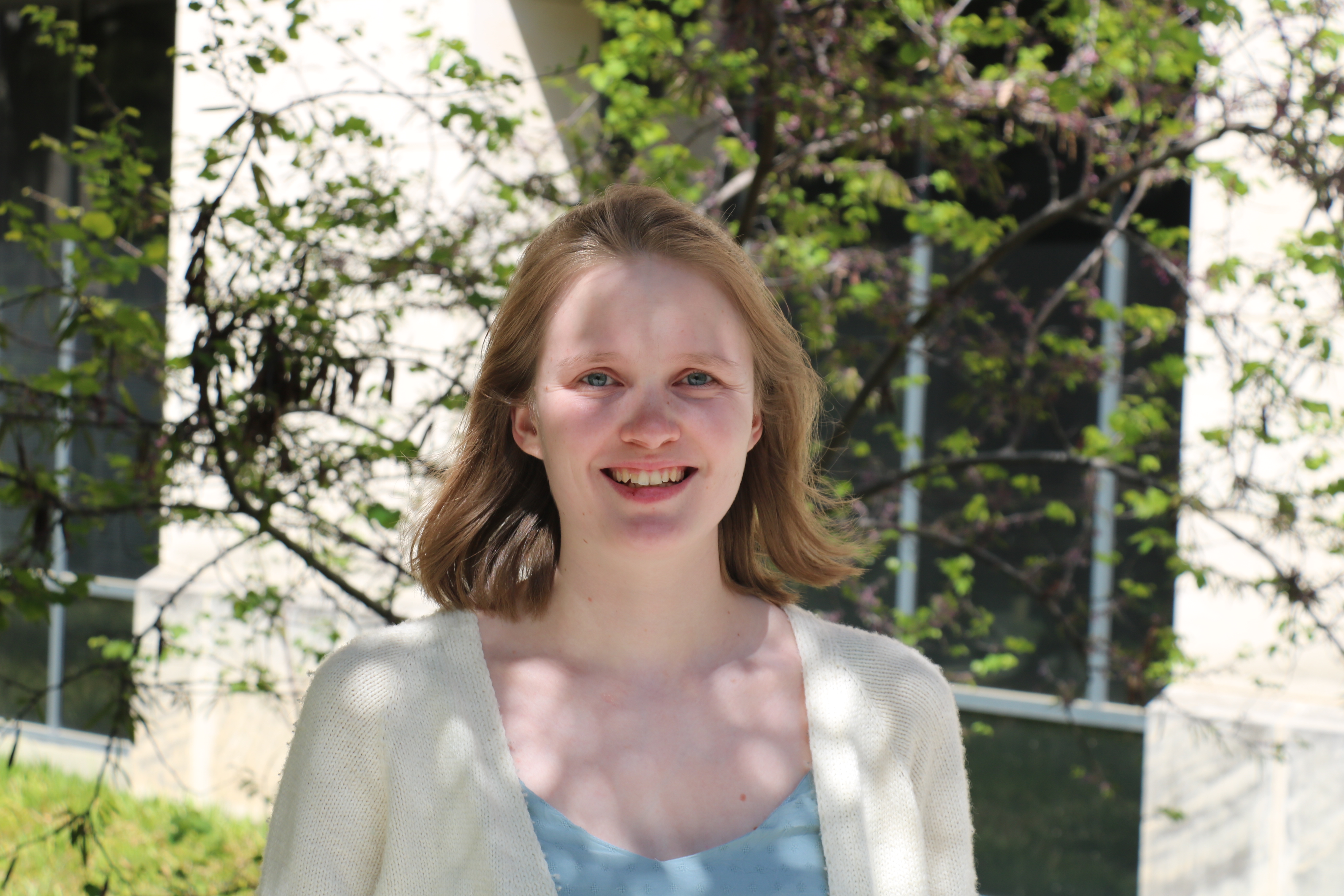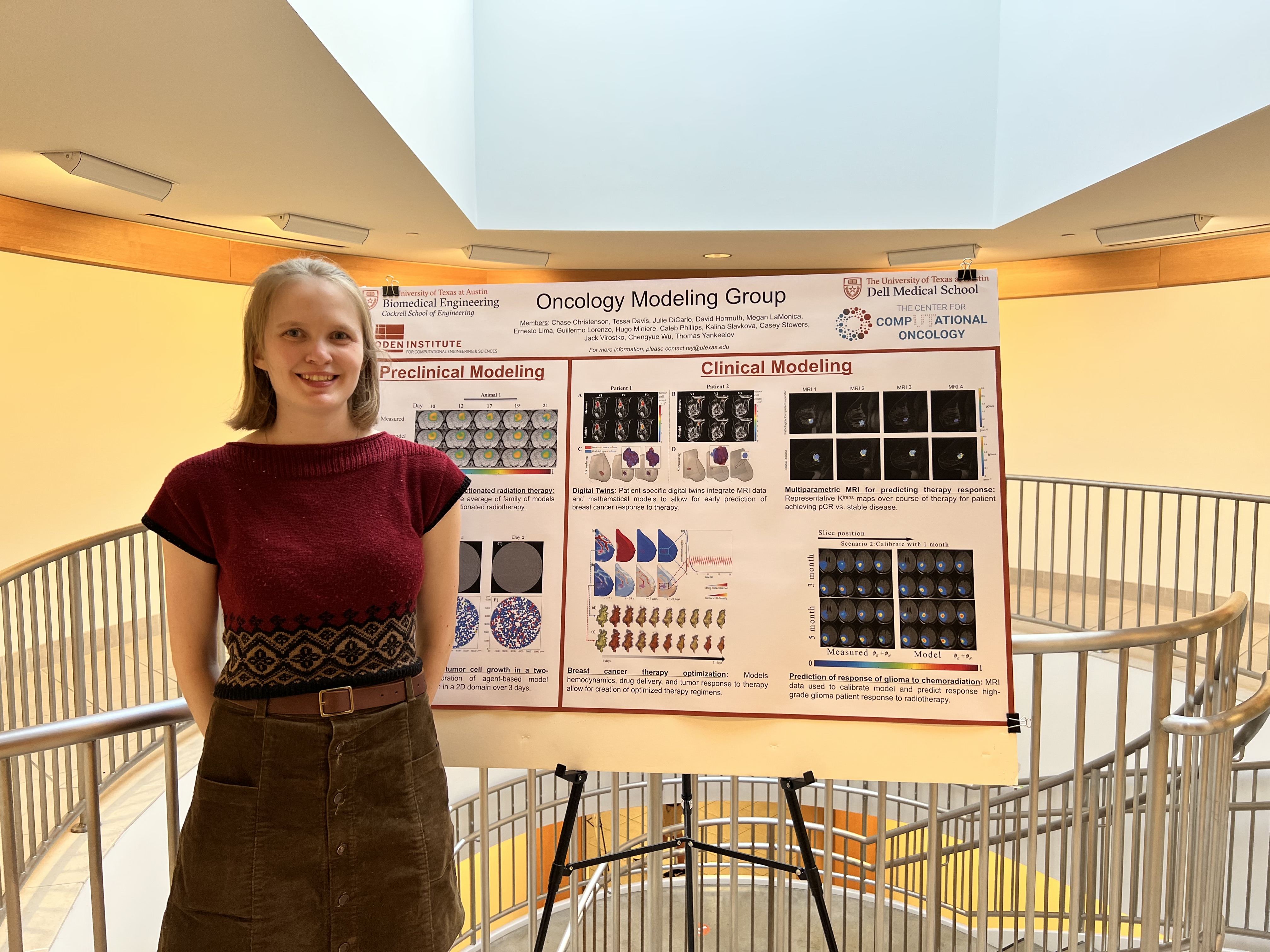Casey Stowers is a second year CSEM student at the Oden Institute. She has just been awarded a coveted National Science Foundation Graduate Research Fellowship Program (NSF-GRFP), that will provide three years of funding ($34,000 stipend and $12,000 for the cost of education each year).
She has already gained an impressive amount of experience - so early in her academic career - across a variety of subject areas and institutions. This has instilled in Stowers an appreciation for the value of interdisciplinary research and was also a big part of her decision to join the Oden Institute.
“That’s also one of the reasons why I have always been drawn to computational science – because it has allowed me to work in so many different application areas,” said Stowers.
Computational science is unique in that progress in one area of application – whether its aerospace engineering, geosciences or medicine – can often lead to progress across the board. Because the mathematical modeling techniques are frequently applicable in other research areas.
During her undergraduate degree Stowers worked on reconstructive skin surgery modeling at Purdue University. She was also a computing intern for two summers at Lawrence Livermore National Laboratories (LLNL) working on deep learning models for optics inspection at the National Ignition Facility.

